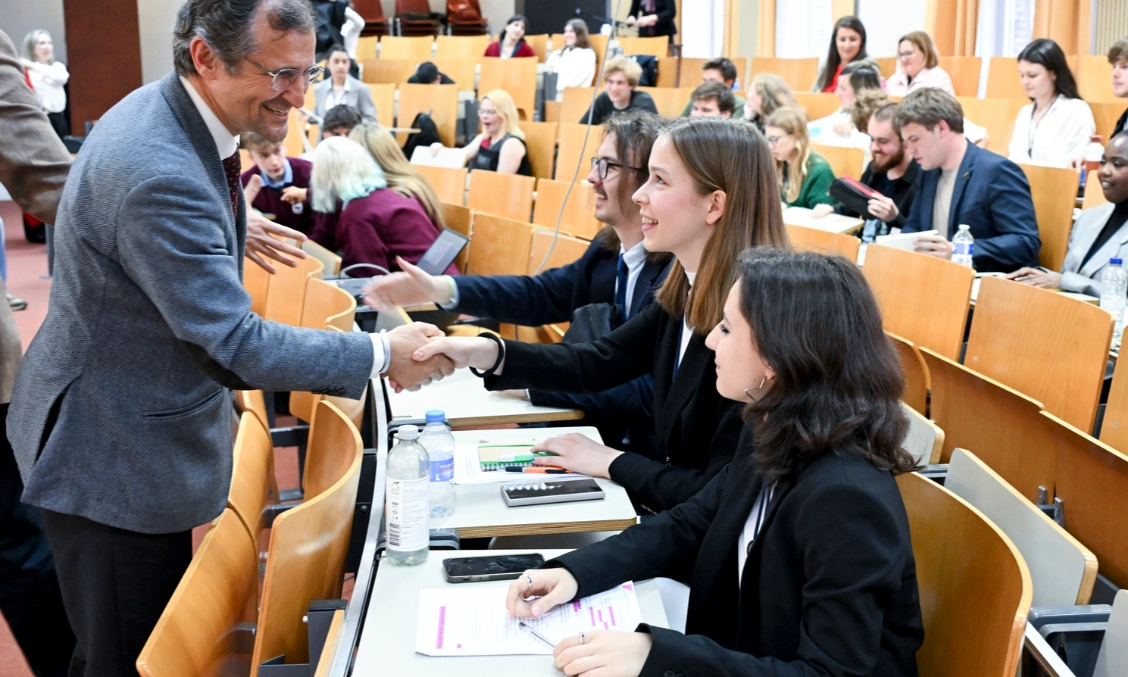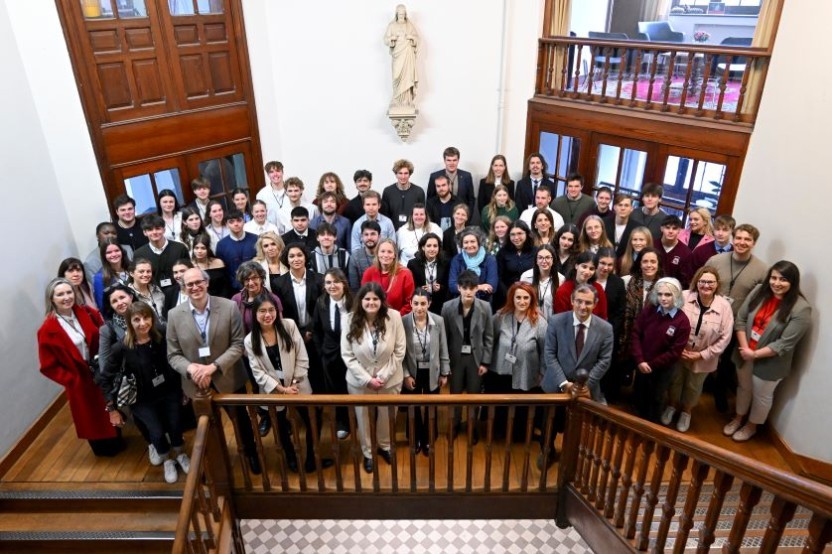
Hungarian Students Shine and achieve 2nd place at the European Debate Event in Brussels
From April 23–24, 2025, Brussels became a hub for critical thinking, collaboration, and youth-driven dialogue as it hosted the Debating Skills European Debate Event. Co-organised by CEPCEP – Universidade Católica Portuguesa, in collaboration with ECNAIS and the European Federation of Education Employers (EFEE), and supported by Porticus, the event brought together the most promising student debaters from eight EU countries: Belgium, Cyprus, Greece, Hungary, Ireland, Portugal, Slovenia, and Spain.
The Hungarian Rectors’ Conference proudly coordinated the national round of the competition in Hungary, which served as the selection platform for the students who would represent the country on the European stage. The winners of the national final — a talented trio from II. Rákóczi Ferenc High School in Budapest: Olívia Pimm, Mia Niczki-Otto, and Áron Balázs — stood out with their eloquence, teamwork, and insightful arguments. Their outstanding performance was supported and guided by their dedicated teacher, Emese Szabó, and they were also accompanied to Brussels by Fanni Kiss from the Hungarian Rectors’ Conference, who provided professional support throughout the event.
The international event in Brussels kicked off on April 23 with a day dedicated to icebreaking activities, creative collaboration, and team-building exercises. Students engaged in dynamic workshops that allowed them to explore the joy of debate while learning how to channel nerves into passion. They co-created a Debate Manifesto, capturing their shared values around dialogue, empathy, and responsible citizenship — all while forming cross-border friendships.
April 24 was the day of the official competition, where the best teams from each country entered into structured rounds of debate on some of the most pressing and thought-provoking topics shaping Europe and the world today. The competition featured a series of rounds, each with a new motion to challenge the students' analytical and rhetorical abilities. Topics ranged from the role of standardized testing in education systems, to the idea of free internet connectivity for all, the proposal for a European army, and the complex realities of a post-truth world. In each round, students were not only assessed on their argumentation and clarity but also on their ability to listen, respond, and build on each other’s ideas.
Hungary’s team demonstrated excellent English proficiency, outstanding public speaking skills, and remarkable teamwork throughout the competition. In the first three rounds, they delivered outstanding performances, impressing both the judges and their peers with their clarity, depth of knowledge, and persuasive skills. Their excellence secured them a spot in the grand final, where they faced off against Ireland. In a gripping and high-level debate, where the Irish team debated in their native language (English), the Hungarian students missed the victory by a mere 0.06 points — a margin of just six hundredths. This narrow result only highlights the remarkable achievement of the Hungarian team, whose success is a testament to the growing culture of debate and critical dialogue in Hungarian secondary education, and to the effectiveness of national initiatives that prioritize civic engagement and public speaking.


 Hungarian
Hungarian